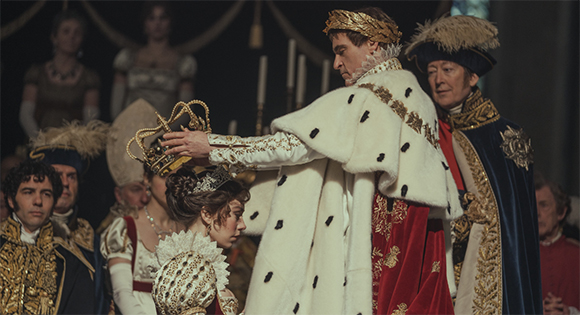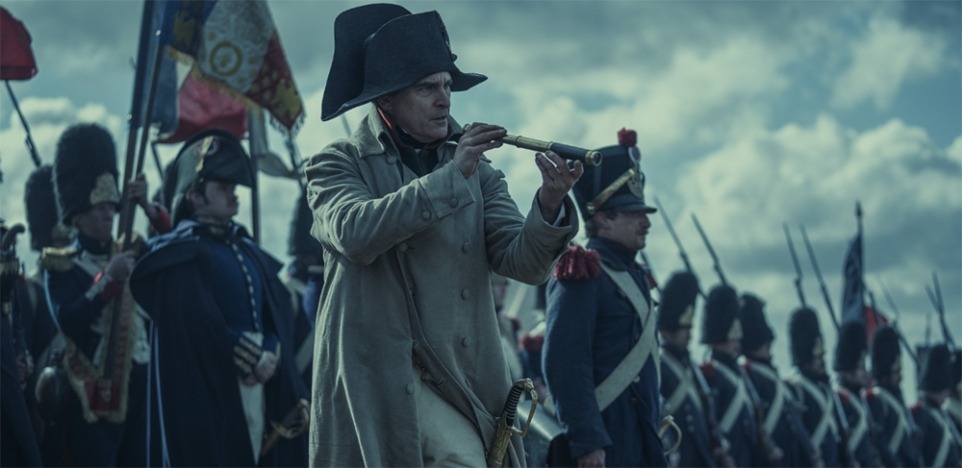Napoleon Bonaparte (1769-1821) was born on the French-owned island of Corsica. At age 16, he graduated from a military school and became an officer in the French army. This biopicture picks up after Napoleon (Joaquin Phoenix) honed his military skills in Europe and Africa and returned to France. He masterminds the defeat of Royalist rebels supported by Anglo-Spanish ships in the city of Toulon. He then rises quickly both in the military and in government.
Napoleon seizes power when a new government is formed in 1799. In 1804, he declares himself emperor in an incredible ornate ceremony. He then embarks on a series of wars to satisfy his gigantic ego and his belief in the military victory as transformative.
Psychiatrists would say that Napoleon exhibits symptoms of narcissistic personality disorder: a grandiose sense of self-importance, a lack of empathy, a willingness to exploit others, frequent envy, and a need for admiration. All these are evident in the film.

Director Ridley Scott, whose films include Gladiator, Robin Hood, and The Last Duel, excels at action sequences, and this movie is full of them. But the story also focuses on Napoleon’s love of Josephine (Vanessa Kirby), his wife and muse. The man’s compulsion to go to war conflicts with his desire to be home with her, especially when he fears she may have affairs. In spiritual terms, his two types of tunnel vision limit his capacity to lead.
“Tunnel vision in a spiritual context refers to a narrow perspective where one is able to see or understand things in a limited or restrictive way. This kind of vision can make us miss out on the bigger picture or other vital aspects of life.
“Tunnel vision can be a blind spot that holds us back from growing and evolving spiritually. It limits our understanding and prevents us from embracing the infinite possibilities that life offers. We’re reminded to continually broaden our perspectives, embrace diversity, and remain open to new ideas and experiences as part of our spiritual journey,”
— from Spirituality&PracticeBot
While the film gives us scenes of Napoleon’s victories over Austria, Russia, and Prussia, the objects of his tunnel vision crumble. When Josephine is not able to give him an heir, he divorces her, although they remain in contact. Meanwhile, the French people become exhausted over war and taxes. In 1812, this overconfident dictator leads his troops in an invasion of Russia in which he lost about 80 percent of his men. In 1815, he suffers a final defeat at Waterloo.
A closing screen chronicles the fatalities in the Napoleonic Wars, totaling in the millions. This makes the following quotes from Napoleon about war more to be lamented than emulated.
- The secret war lies in the communications.
- Great battles are won with artillery.
- War is the business of barbarians.
- A soldier will fight long and hard for a bit of colored ribbon.
- Never interrupt your enemy when he is making a mistake.
- He who fears being conquered is sure of defeat.
- There are only two forces that unite men -- fear and interest.
- History is the version of past events that people have decided to agree upon.
